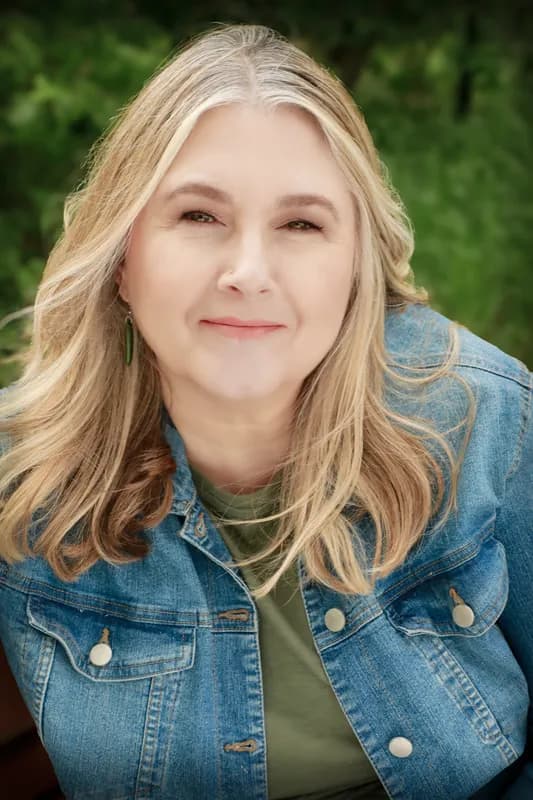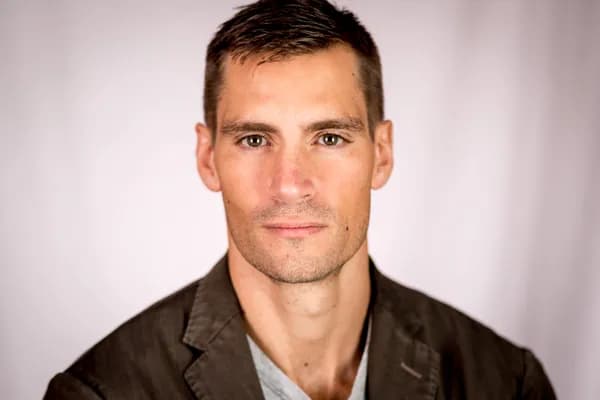Therapy for codependency

You give and give until there's nothing left. You fix problems that aren't yours to solve. You say yes when you mean no, apologize when you've done nothing wrong, and feel responsible for other people's emotions. Your mood depends entirely on whether someone else is happy or upset. You've lost track of who you are outside of taking care of others. This isn't love, and it isn't selflessness. It's codependency, and it's quietly exhausting you. The good news is that you can learn to care about people without losing yourself in the process. Therapy can help you rebuild boundaries, rediscover your own needs, and create relationships where both people get to exist fully.
Recognizing codependent patterns
How it starts
Codependency often develops early. Maybe you grew up in a home where you had to manage a parent's emotions, mediate conflicts, or become overly responsible too young. Perhaps you learned that your value came from being helpful, agreeable, or invisible. You became skilled at reading rooms, anticipating needs, and keeping peace. These survival strategies served you once, but now they're running your adult relationships. You find yourself attracted to people who need fixing, or you twist yourself into shapes to avoid conflict and abandonment.
The daily experience
Codependency feels like walking on eggshells while also carrying someone else's emotional baggage. You check your phone constantly, anxious about how they're doing. You cancel your plans when they're upset. You lie awake analyzing conversations, wondering what you did wrong. Your self-worth rises and falls based on whether you've pleased them. You might feel resentful but then guilty for feeling resentful. You know something is off, but you can't quite name it. You're so busy managing everyone else that you've forgotten what you actually want.
Different faces of codependency
Codependency doesn't always look the same. Some people are classic caretakers who martyr themselves for others. Others are controlling, believing they know what's best and managing everyone around them. Some are people-pleasers who can't say no. Others are enablers who protect people from consequences. You might be the responsible one who holds everything together, or the rescuer who swoops in to solve problems. Some people jump from one intense relationship to another, while others stay in harmful situations far too long. The common thread is that your sense of self is entangled with someone else's wellbeing.
What codependency costs you
Loss of self
When you spend years prioritizing others, you lose touch with your own preferences, values, and dreams. You might not know what you like to eat, what you enjoy doing, or what you believe in. Your identity becomes defined by your relationships rather than by who you are. Therapy helps you rediscover yourself and build a sense of self that exists independently of whether someone needs you.
Exhaustion and resentment
Constantly managing others' emotions while neglecting your own is draining. You might feel physically tired, emotionally depleted, or burned out. Resentment builds when your efforts aren't appreciated or reciprocated, but you feel too guilty to set limits. This pattern leads to anxiety, depression, and sometimes physical health problems as your body keeps score of the stress you're carrying.
Relationship dysfunction
Codependency prevents genuine intimacy. When you're not being authentic, others can't truly know you. Your relationships become transactional: you give, they take. Or you attract people who prefer someone without strong boundaries. Healthy people might feel smothered by your intensity or uncomfortable with your self-abandonment. Learning to show up as yourself, with boundaries and needs, actually creates space for real connection.
How therapy addresses codependency
Why working with a therapist matters
Breaking codependent patterns requires more than just recognizing them. You need to understand where they came from, grieve what you didn't get as a child, and slowly build new ways of relating. A therapist helps you see your blind spots, challenge the beliefs keeping you stuck, and practice boundaries in a safe relationship. They won't let you take care of them instead of yourself. They'll notice when you're abandoning your needs and gently redirect you back to your own experience. This process can feel selfish or scary at first, but it's actually how you begin to heal.
What therapy looks like
Treatment begins with assessment: understanding your relationship history, family of origin, current patterns, and what specifically brings you to therapy now. Your therapist will help you identify codependent behaviours, explore their roots, and examine the beliefs driving them. You'll learn to distinguish between healthy caring and unhealthy enmeshment. The work involves building self-awareness, establishing boundaries, tolerating discomfort, and developing a stronger sense of self. This isn't about becoming selfish; it's about becoming whole.
Therapeutic approaches that help
Cognitive behavioural therapy
CBT helps you identify the thoughts and beliefs that fuel codependency: "I'm responsible for their happiness," "saying no makes me a bad person," "I don't matter as much as they do." You'll learn to challenge these beliefs and replace them with healthier ones. CBT also teaches practical skills for managing anxiety, asserting boundaries, and tolerating the discomfort that comes with changing patterns.
Psychodynamic therapy
This approach explores how early experiences shaped your relationship patterns. You'll examine your family dynamics, attachment style, and unconscious beliefs about love and worthiness. Understanding where codependency came from helps you separate past from present and make conscious choices about how you want to relate now. This deeper work often brings lasting change.
Boundary work and assertiveness training
Many codependent people have weak or nonexistent boundaries. You'll learn what healthy boundaries look like, practice identifying your limits, and develop skills for communicating them clearly and kindly. This includes learning to say no, asking for what you need, and allowing others to experience consequences without rescuing them. Your therapist will help you practice these skills in session and support you as you apply them in real life.
Self-compassion and self-worth building
Codependency often stems from deep feelings of unworthiness. You'll work on developing self-compassion, recognizing your inherent value, and treating yourself with the same kindness you extend to others. This might involve inner child work, practicing self-care without guilt, and learning to validate your own emotions rather than seeking constant external validation.
Addressing co-occurring issues
Codependency often exists alongside anxiety, depression, or trauma. If you grew up in a home with addiction, abuse, or mental illness, you may need trauma-focused work. If you're currently in an unhealthy or abusive relationship, safety planning becomes part of treatment. Your therapist addresses these interconnected issues rather than treating codependency in isolation.
The journey toward healthier relationships
Recognition and understanding
Early sessions focus on mapping your patterns, understanding where they came from, and recognizing how they show up in your current life. You'll identify specific behaviours, explore your family history, and begin to see connections. This awareness phase can be uncomfortable as you realize how deeply ingrained these patterns are, but it's the necessary first step toward change.
Skill building and practice
You'll learn and practice new skills: setting boundaries, identifying your feelings and needs, communicating directly, and tolerating others' reactions. Your therapist might role-play difficult conversations with you or help you prepare for boundary-setting moments. Between sessions, you'll practice these skills in real relationships. Progress often feels two steps forward, one step back, which is completely normal.
Integration and growth
As you strengthen your sense of self and establish healthier patterns, relationships will shift. Some will improve as you bring more authenticity. Others may end if they were built entirely on codependent dynamics. You'll grieve what you didn't receive in childhood and let go of the fantasy that if you just try hard enough, you can fix or change someone. You'll discover that having needs doesn't make you needy, and that healthy relationships involve mutual care, not one-sided sacrifice.
Find a therapist for codependency
Choosing the right therapist matters. Each province in Canada has its own regulations, which is why working with a recognized professional can make a real difference in your care. Stellocare takes the uncertainty out of the process by listing only verified therapists you can trust.
The right therapist for you
No therapists found with these specialties in Ontario.
Try selecting a different province.Resources and strategies
Support and information
Co-Dependents Anonymous (CoDA)
Free peer support meetings for people working on codependency patterns. Meetings available across Canada, both in-person and online. Based on the 12-step model adapted for codependency recovery. Find meetings.
Books on codependency
Codependent No More by Melody Beattie is the classic text on recognizing and recovering from codependency. The New Codependency by the same author offers updated perspectives. Boundaries by Henry Cloud and John Townsend provides practical guidance on setting healthy limits.
Canadian Mental Health Association
Information and resources about mental health and relationships. Provincial branches offer programs and services. Visit CMHA.
Practices for breaking codependent patterns
Reconnecting with yourself
- Check in with yourself regularly: throughout the day, pause and ask "What am I feeling right now? What do I need?" Notice if you automatically think about what others need instead.
- Reclaim your preferences: practice making small choices without consulting others or worrying about their reaction. Order what you actually want at restaurants. Choose the movie you want to see. Notice when you default to "I don't care, what do you want?"
- Spend time alone: regularly schedule time by yourself doing things you enjoy. If this feels uncomfortable or makes you anxious, that's information about how dependent you've become on others for your sense of self.
Building boundaries
- Start with small no's: practice saying no to minor requests before tackling bigger ones. "No, I can't help you move this weekend" or "No, I'm not available to talk right now." Notice the discomfort without changing your answer.
- Stop over-explaining: you don't need elaborate justifications for your boundaries. "That doesn't work for me" is a complete sentence. Notice your urge to apologize or provide detailed reasons.
- Let others have their feelings: when someone is upset, practice not rushing to fix it or taking responsibility for it. You can acknowledge their feelings without absorbing them or changing your boundary to make them feel better.
Challenging codependent thoughts
- Question your responsibility: when you feel responsible for someone's emotions or problems, ask "Is this actually mine to fix? What happens if I don't intervene?" Often nothing terrible happens.
- Notice people-pleasing: catch yourself shaping your opinions, preferences, or personality to match what you think others want. Ask "What do I actually think about this?"
- Reframe selfishness: taking care of your needs isn't selfish; it's necessary. Healthy relationships require two whole people, not one person disappearing into another.
Journaling apps like Day One or simple notes apps can help you track your feelings, needs, and boundary-setting attempts. Headspace or Calm offer mindfulness exercises that help you tune into your own experience rather than constantly monitoring others.
Questions about codependency recovery
Isn't it good to care about others and help them?
Caring is healthy. Codependency happens when caring means abandoning yourself, taking responsibility for others, or tying your wellbeing to someone else's mood. Healthy caring includes boundaries and caring for yourself too.
Will setting boundaries push people away?
Some people may react badly, especially if they relied on your lack of boundaries. Healthy people respect limits. If someone cannot accept your boundaries, the relationship likely rested on unhealthy patterns. Clear limits help you build healthier connections.
How do I know if I'm codependent or just caring?
Signs include neglecting your needs, feeling guilt when setting limits, tying your mood to others, feeling responsible for their emotions, or staying in unhealthy relationships hoping someone will change. These patterns suggest codependency.
Can codependency be cured?
It's a learned pattern, not a disease. With awareness and practice, you can replace codependent behaviours with healthier ones. Recovery is ongoing but very possible.
What if my partner or family member is upset by my changes?
Pushback is common when people benefit from your codependency. They may guilt you or call you selfish. Stay grounded in your reasons for changing. Therapy helps you hold boundaries even when others resist.
Related concerns
References
- Dear, G. E., Roberts, C. M., & Lange, L. (2005). Defining codependency: A thematic analysis of published definitions. In S. Shohov (Ed.), Advances in Psychology Research, Vol 34 (pp. 189-205). Nova Science Publishers. Retrieved from https://ro.ecu.edu.au/ecuworks/7153/
- Knudson, T. M., & Terrell, H. K. (2012). Codependency, perceived interparental conflict, and substance abuse in the family of origin. The American Journal of Family Therapy, 40(3), 245-257.
- Bacon, I., McKay, E., Reynolds, F., & McIntyre, A. (2018). The lived experience of codependency: An interpretative phenomenological analysis. International Journal of Mental Health and Addiction, 16, 205-219.
- Hofmann, S. G., Asnaani, A., Vonk, I. J., Sawyer, A. T., & Fang, A. (2012). The efficacy of cognitive behavioral therapy: A review of meta-analyses. Cognitive Therapy and Research, 36(5), 427-440. Retrieved from https://pmc.ncbi.nlm.nih.gov/articles/PMC3584580/
- Co-Dependents Anonymous. Welcome to CoDA. Retrieved from https://coda.org/
- Canadian Mental Health Association. Mental health information. Retrieved from https://cmha.ca/
- Al-Anon Family Groups. Find an Al-Anon meeting. Retrieved from https://al-anon.org/
About Stellocare
Stellocare is a Canadian platform where you can find the best fit therapist for you. Search the right thperaists now by asking our AI, browsing our list, or finding our social workers for personal referral.

Sumudini Sathivadivel
Registered Social Worker (ON)

Tom Roes
Registered Social Worker (ON)

Jonathon Zarb
Registered Psychotherapist (ON)

Renée Dangerfield-Allen
Registered Social Worker (AB)

Yuansheng Lu
Registered Psychotherapist (Qualifying) (ON)

Manishapreet Grewal
Registered Psychotherapist (Qualifying) (ON)

Jason Chang
Canadian Certified Counsellor

Claudia Dargis
Registered Psychotherapist (ON)

Cameron Whatram
Registered Clinical Counsellor (BC)

Jessica Sykes
Registered Psychotherapist (Qualifying) (ON)

Lindsey Cepek
Registered Psychotherapist (Qualifying) (ON)

Supriya Verma
Registered Psychotherapist (Qualifying) (ON)

Michelle Lehoux
Registered Psychotherapist (Qualifying) (ON)

Elena Temelkova
Registered Psychotherapist (Qualifying) (ON)

Alexina Picard
Registered Clinical Counsellor (BC)

Caitlin Pelkey
Registered Psychotherapist (Qualifying) (ON)

Ashley Neveu
Registered Psychotherapist (ON)

Anna Evans
Registered Social Worker (ON)

Liz Hagerty
Registered Social Worker (BC)

Shayesteh Zarieh
Registered Psychotherapist (Qualifying) (ON)

Sumudini Sathivadivel
Registered Social Worker (ON)

Tom Roes
Registered Social Worker (ON)

Jonathon Zarb
Registered Psychotherapist (ON)

Renée Dangerfield-Allen
Registered Social Worker (AB)

Yuansheng Lu
Registered Psychotherapist (Qualifying) (ON)

Manishapreet Grewal
Registered Psychotherapist (Qualifying) (ON)

Jason Chang
Canadian Certified Counsellor

Claudia Dargis
Registered Psychotherapist (ON)

Cameron Whatram
Registered Clinical Counsellor (BC)

Jessica Sykes
Registered Psychotherapist (Qualifying) (ON)

Lindsey Cepek
Registered Psychotherapist (Qualifying) (ON)

Supriya Verma
Registered Psychotherapist (Qualifying) (ON)

Michelle Lehoux
Registered Psychotherapist (Qualifying) (ON)

Elena Temelkova
Registered Psychotherapist (Qualifying) (ON)

Alexina Picard
Registered Clinical Counsellor (BC)

Caitlin Pelkey
Registered Psychotherapist (Qualifying) (ON)

Ashley Neveu
Registered Psychotherapist (ON)

Anna Evans
Registered Social Worker (ON)

Liz Hagerty
Registered Social Worker (BC)

Shayesteh Zarieh
Registered Psychotherapist (Qualifying) (ON)

